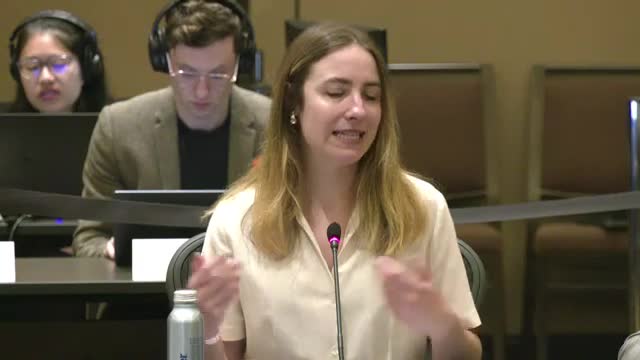Researcher Develops EpiScan Tool to Identify HIV Peptides for Therapy
July 13, 2025 | University of California, Boards and Commissions, Executive, California
Thanks to Scribe from Workplace AI and Family Portal , all articles about California are free for you to enjoy throughout 2025!

This article was created by AI using a video recording of the meeting. It summarizes the key points discussed, but for full details and context, please refer to the video of the full meeting. Link to Full Meeting
HIV is notorious for its ability to mutate rapidly, creating a diverse array of peptides that can escape immune detection. This complexity has made it challenging for researchers to pinpoint which specific peptides are present on infected cells, allowing some to persist in the body for years. Traditionally, scientists have relied on a trial-and-error approach, testing peptides one by one to see which ones match with Major Histocompatibility Complex (MHC) molecules on cell surfaces. This method is time-consuming and inefficient, akin to an endless scroll through countless options.
The introduction of EpiScan changes this dynamic. By screening hundreds of thousands of HIV peptides simultaneously, researchers can identify which peptides effectively bind to MHC molecules. The process involves engineering cells to carry individual HIV peptides. When a match occurs, MHC molecules are transported to the cell surface, indicating a successful interaction. This allows researchers to focus on the most promising peptides that could lead to new therapies.
The implications of this research are profound. By accurately identifying the peptides that help HIV evade the immune system, scientists could develop targeted treatments that eliminate these lingering infected cells. This advancement not only enhances our understanding of HIV but also brings us closer to more effective therapies for those living with the virus.
As the meeting concluded, researchers expressed their excitement about the potential of EpiScan and its ability to streamline the search for effective HIV treatments. The community is encouraged to stay informed about these developments, as they hold the promise of transforming the landscape of HIV therapy in the near future.
Converted from Board 8:30 AM meeting on July 13, 2025
Link to Full Meeting
Comments
View full meeting
This article is based on a recent meeting—watch the full video and explore the complete transcript for deeper insights into the discussion.
View full meeting
